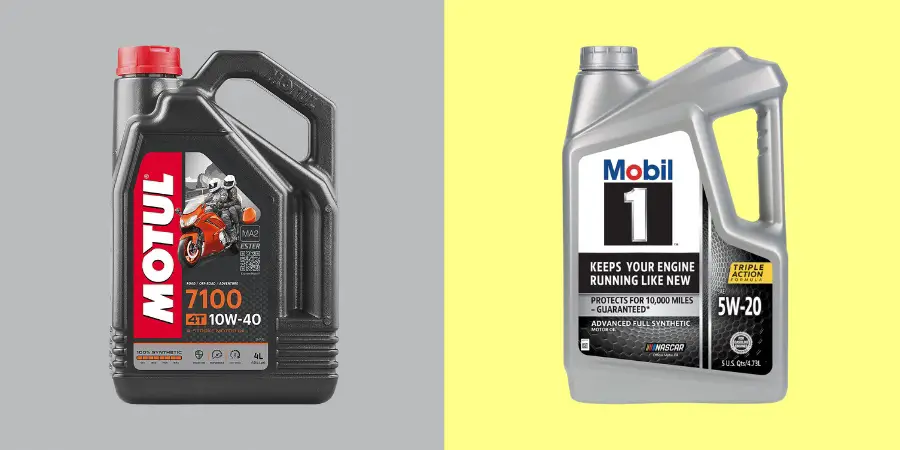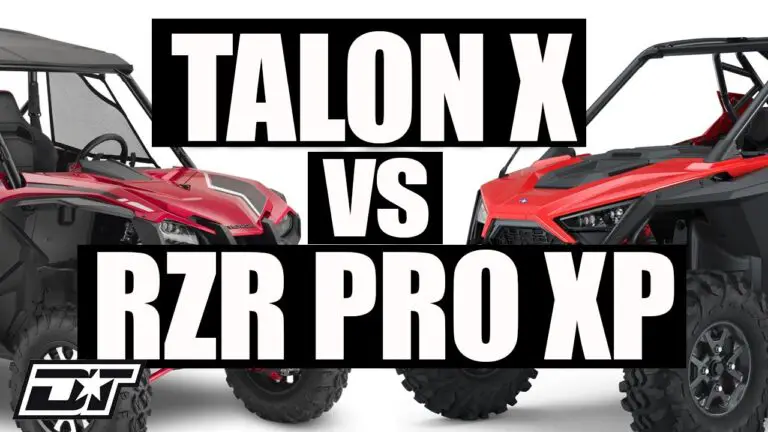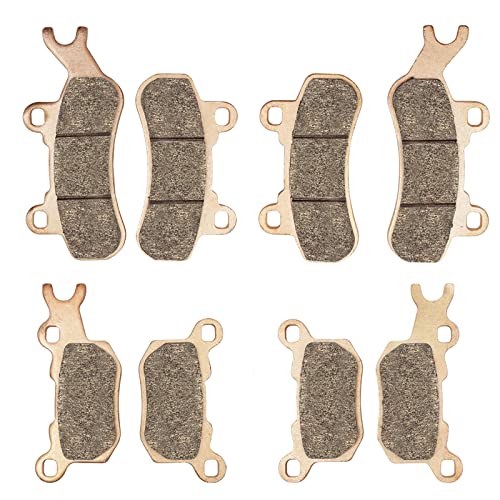ATV Oil vs Car Oil: The Key Differences 2025
I want to know from you first, “Can You Use Motorcycle Oil In An ATV?” And I’m pleased to tell you,
My friend from out of state came to see me. He wanted to ride our four-wheelers and motorcycles around my city for a while. He checked off items on a pre-ride checklist as soon as he got here to ensure everything was prepared for our journey.
He saw that his ATV needed more oil, so he inquired if I knew of any motorcycle shops around where he could buy some ATV oil.
I gave him Mobile 1 synthetic motor oil and asked him to use it. He claimed it wasn’t the same, so he couldn’t use it. Since I’ve spent the majority of my life riding four-stroke motorcycles and ATVs, I was unaware that the oil was different. I’ve only ever used 10w-40 designed for vehicles.
I added it to my post list and started searching for a solution, just as much as I do with every question posed. Here is what I discovered:
You can use motorcycle oil in an ATV or UTV. However, it’s not always recommended. If you must, synthetic car oil is your top choice. It is ideal to use oils designed specifically for ATVs, motorcycles, and UTVs because they are designed to safeguard those smaller engines.
Let’s delve a little more into the logic and science behind this.
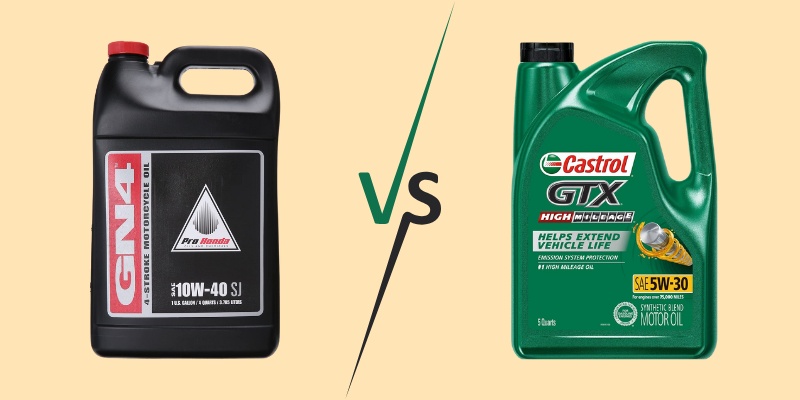
ATV Oil vs Car Oil – Is there a difference between ATV Oil and Car Oil?
At the core of the discourse, the answer to the above question is yes. There are a lot of differences between car oil and ATV oil. That’s not to suggest there aren’t instances in which you can use car oil in a motorcycle or ATV, but we will get to that later.
The UTV or ATV engine operates in a more demanding environment than a typical truck or car. ATVs have wet clutches, operate at higher revolutions per minute (RPMs), and get hotter.
ATV oil has different friction modifiers and a lower volume that are necessary to lubricate the engine and, in most scenarios, aid in preventing clutch slippage.
This is so because the majority of ATV/UTV motors and motorcycle engines use a single conventional sump pump for the transmission, engine, and clutch. Compared to car oil, the oil has to work harder to adapt to various situations.
ATV oils include seven or more constituents compared to car oils, which normally have four, as they contain additives to address a variety of ATV-specific problems.
Extreme cold or hot or rust prevention is not necessary for cars. On the other hand, ATVs don’t require oil, which saves energy to increase fuel mileage. Therefore, concerning smaller engines, where many variations occur over a shorter time in more extremes, the type of oil counts.
In addition, viscosity is crucial to how well the two vehicles work. Viscosity is a measurement of an oil’s flow resistance.
ATVs need specific viscosity readings for best performance, which they can only obtain using a viscosity modifier. It is the duty of the viscosity modifier to adjust the oil viscosity in accordance with changing conditions.
Regular oil changes for cars eliminate the requirement to maintain viscosity stability. A specific oil that remains effective even after six months of use is needed for ATVs.
The wet clutch on an ATV may slip due to additives in car oils, resulting in gear pitting, increased oil consumption, and oil foaming up due to high temperatures.
It’s also crucial to keep in mind that the components of the motorcycle, UTV, and ATV oil filters are made to work with additives and specific friction modifiers. That is if they even have an oil filter. Without an oil filter, the used oil may attract contaminants that the normal oil would not have.
Suppose you use regular motor oil that isn’t intended for these off-road vehicles. In that case, you risk damaging the wet clutch, engine, or other components. These contaminants would often be caught in the car oil filter but not in an ATV, UTV, or dirt bike.
These factors clearly account for the obvious differences between ATV oil and car oil.
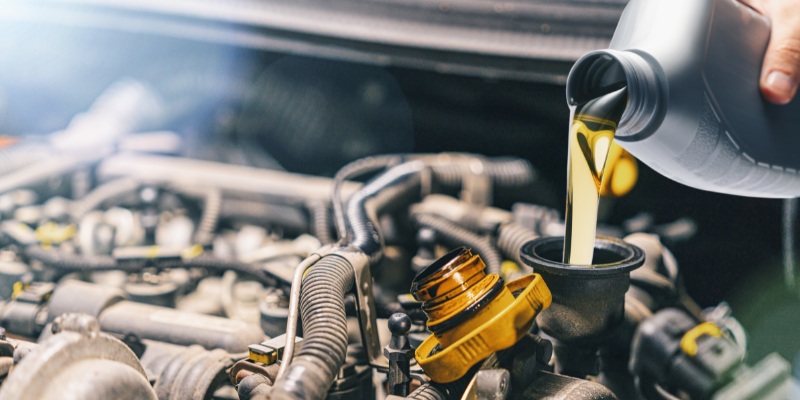
Is there ever a time when I could use Car Oil on my ATV or UTV?
Everything mentioned has to do with achieving the best performance possible considering an ATV’s needs. It also involves taking safety precautions if you’re running your ATV and some parts are damaged or worn out.
Nevertheless, based on anecdotal data, it appears that using car oil in your ATV is acceptable so long as the vehicle does not claim to preserve energy on the front. Due to less friction caused by the low viscosity, the clutch will slip.
The ATV should be able to run nicely using 10w40 oil. Most 10w30 and 5w30 oils conserve energy and are much thinner. The 10w40 is your best bet, especially if it is used in scenarios where there is a need to go somewhere and a special ATV oil is not available.
On the other hand, car oil shouldn’t damage your ATV immediately if you don’t want to pay the additional $4 per quart for ATV oil. As previously mentioned, continued use may result in insufficient protection for your engine’s parts.
Frequently Asked Questions
What is the typical Motorcycle Engine Oils Weight?
The most common motorcycle engine oil weight is the 10w40.
Can a normal oil be used in an ATV?
It is not recommended to use any oil in your off-road vehicle…Wrong! Similar to any other normal car, your UTV or ATV needs motor oil, but any oil won’t do. Specialized oils are unquestionably necessary for these machines because they operate at greater RPMs, exert more force, and work harder than your truck.
Should I run my ATV with synthetic oil?
The fundamental breakdown is as follows: Synthetic oils are engineered to resist thermal breakdown, withstand greater engine temperatures, and reduce friction on engine parts. Your ATV will likely perform better with synthetic oil if you are willing to spend more on it than with normal oil.
What kind of oil is used in a four-wheeler?
Traditional automobile motor oils typically have a viscosity of 10W-30 or 5W-20. In contrast, Polaris, for example, employs a viscosity of 5W-50 for their off-road engines.
Wrap-up
For optimum performance of your car, you must fill the tank with the appropriate type of oil. Most of the time, the vehicles, such as ATVs, designed for off-road performance need to be in top condition.
Thus, using the wrong type of oil might negatively affect your ATV performance and lead to serious problems that would cost you more money.
It is necessary to buy oil according to the ATV model and from the company, which sells products specifically designed for that ATV model.

